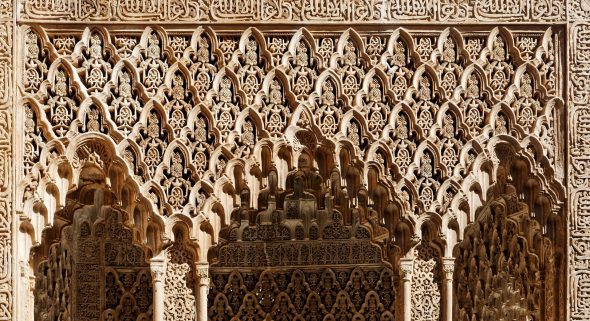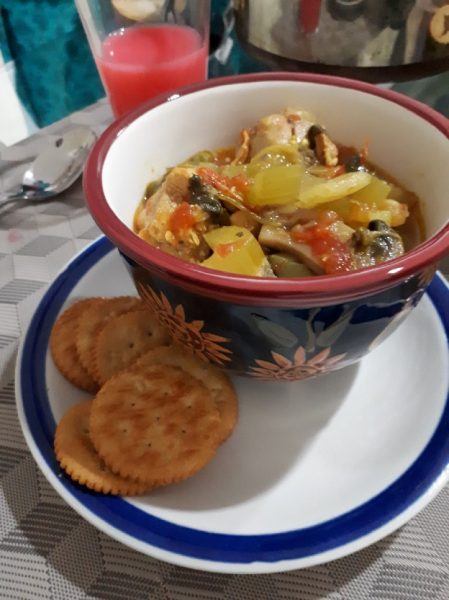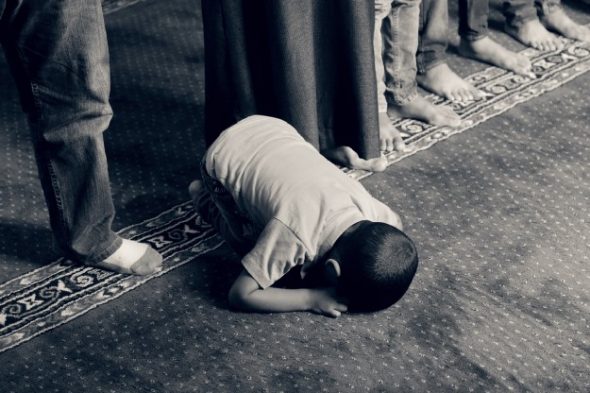Guest Blog Post by Shehna Javeed, M. Ed. ( @shehnaTO )

Last Ramadan (2020) Muslims fasted without community.
We were in the first wave of the pandemic frantically shopping for toilet paper and hand sanitizer.
No community iftaars (parties for breaking of fast),
no prayers at mosques and no parties with friends.
While it was strange,
it seemed like a one-time thing (See film “The Year We Fasted Alone”),
but here we are again,
fasting alone,
while a third more deadlier wave of COVID-19 infections cloud over Toronto, as Ramadan 2021 comes to an end.
For Muslims who practice it,
Ramadan is like hitting an annual “reset” button of the physical and the spiritual aspects of being.
It is an opportunity to rejuvenate and nourish the spiritual self that gets diminished by the incremental increase of material desire over time.
The creep of materialism and other physical desires such as food, clothes, spending in excess, negative emotion such as anger and envy, can be insidious.
Ramadan acts as a reboot and new spiritual updates load up as the Muslim practices refraining from food during daylight hours for the 29 or 30 days.
It is not just about food but a cleansing of the soul, the body and one’s wealth.
It is a check-in towards humility and away from arrogance.
It is an acknowledgement of gratitude away from greed,
and it is a look inward to consider what needs to be fixed in the outward being.
Muslims donate generously, pray authentically, and pay close attention to how parts of us can be reinvented toward good.
Only when we hit the reset button do we realize what needed to be changed, much like when we update our electronic devices.
While in this pandemic, as the banality of each day continues, all days blending into each other, we languish in “stagnation and emptiness” in this continued isolation.
Many of us feel ourselves regressing inward, strangely getting accustomed to this lonely existence.
The cited New York Times article describes it as the “void between depression and flourishing”.
Going to the grocery store to pick up pastries to share a simple iftaar (food for breaking fast) front door drop-off was riddled with anxiety because the store seemed more full of people then it should have been,
or perhaps I was just manifesting the over a year long practiced fear of others due to social distancing.

So how is this Ramadan different?
I struggle as I write this piece because while I have increased my worship and submission to the Creator,
I also feel an emptiness that is unusual.
In disease there is despair.
The start of the pandemic showed us how our senior citizens became victim to this deadly pandemic.
Over the year,
we had two close family members fight for their lives and win against covid-19 while we lost one other close family member.
Since my family is originally from India,
we are in shock and sadness at the recent second wave in India, where death and loss ravage a nation.
Until it hits home it is not real.
We had one covid scare right in our own home when even a slight common cold or a rising body temperature due to exhaustion can lead to panic and fear until a negative Covid test eases the anxiety.
In despair there is hope.
We have witnessed acts of generosity where people and organizations have galvanized communities during Ramadan and beyond.
Jamal Alsharif in Ottawa has set out to clean 30 streets in 30 days with his son during Ramadan or the 9 year old girl Hana Fatima whose gesture to help a neighbour who is a senior citizen became a facebook grassroot group of people helping each other.
Many others have organized and delivered food, and helped the homeless.

In a year, we have gone from a man who could not breathe, and his last breath galvanized an awakening, to a nation that is choking, shocked, grieving and angry.
I wait with bated breath to see how it will consider its truth to power.
Action moves us forward, because inaction can lead to paralysis.
I have worked on strengthening my inner voice to advocate against isms and phobias that berate our society.
I have tried to organize events with like-minded colleagues,
to educate and increase awareness against anti-Asian racism, anti-black racism, Islamophobia and hate of any kind.
But I still feel like a coward staying safe, with my privilege, while those who bring us food and take care of our sick, are out there sacrificing every day.
If the worship in Ramadan began as a jog, it intensifies into a sprint in the last 10 days of the month, sacrificing sleep, contemplation in solitude, seeking the pleasure of the Creator.
I am filled with gratitude in ways that I have never been before,
and this is a gift of Ramadan and of the pandemic combined.
The pandemic has also been a type of reset for planet earth, and we are still rebooting.
As Ramadan will soon come to a close, but the pandemic will not, I grasp to the hope that as an indelibly marked people, we will be more humble and refreshingly humane.
As we metamorphosize,
I hope that we will go beyond the physical and acknowledge our collective humanity and see how we can seek to be good,
maybe even better than who we were,
and this is a lesson of Ramadan too.
Written by
Shehna Javeed M. Ed.
Shehna is a higher education administrator and a 2019 TEDx speaker.
She has published articles with NACADA and presented at professional conferences.
This is Shehna’s second Guest Blog Post for 30 Masjids.